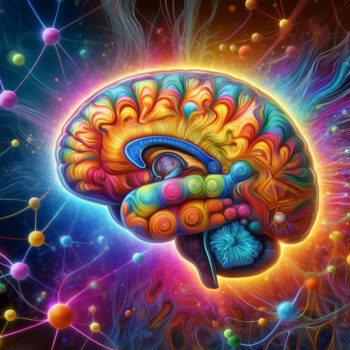Staff writer for Wake Up World.
In recent years, the scientific community has rekindled its interest in the therapeutic potential of psychedelic drugs, marking a significant shift from their historical stigma. During the 1960s, substances such as LSD and psilocybin became intertwined with counterculture movements, prompting governments around the world to take strict regulatory actions. Many theorists argue that these government crackdowns were not only a reaction to the drugs’ psychoactive effects and their association with social rebellion but also part of a broader ‘war on consciousness.’ This war aimed to suppress a burgeoning societal shift towards greater personal enlightenment and challenge the status quo, fueled by the expansive, mind-altering experiences these substances provided.
Today, the revival of psychedelic research represents a critical departure from the past, driven by a modern understanding of their potential therapeutic benefits. Contemporary scientific investigations are rigorously exploring the use of these once-demonized substances for treating a spectrum of neuropsychiatric disorders, including depression, anxiety, PTSD, and addiction. This resurgence has led to groundbreaking discoveries, particularly about how psychedelics interact with the brain’s serotonin receptors. Advances in technology and methodology uncover the complex ways these drugs affect neural pathways, offering new hope for developing treatments that could revolutionize mental health care, aligning more closely with an evolved understanding of human consciousness and psychological well-being.
The Role of Serotonin Receptors in Psychedelic Therapy
5-HT1A Receptors: A Key to Unlocking New Treatments
Researchers at the Icahn School of Medicine at Mount Sinai have recently published findings in Nature that shed light on the complex interactions between psychedelic drugs and serotonin receptors, particularly the 5-HT1A receptor. “Psychedelics like LSD and psilocybin have entered clinical trials with promising early results, though we still don’t understand how they engage different molecular targets in the brain to trigger their therapeutic effects,” says Audrey Warren, a PhD candidate and the study’s first author. The study highlights how the modulation of 5-HT1A receptors could play a crucial role in both the psychedelic experience and its therapeutic outcomes.
Innovations in Psychedelic Compounds
The research team, including experts from Columbia University, synthesized derivatives of 5-MeO-DMT, a compound found in the secretions of the Colorado River Toad, focusing on their interaction with serotonin receptors. They discovered a compound, 4-F, 5-MeO-PyrT, through meticulous experimentation, which shows strong selectivity for the 5-HT1A receptor over the hallucinogenic 5-HT2A. This compound demonstrated significant antidepressant-like effects in animal models, mediated primarily through the 5-HT1A receptor.
Clinical Implications and Future Prospects
Towards Non-Hallucinogenic Therapeutics
“Our findings suggest that receptors other than 5-HT2A not only modulate behavioral effects stemming from psychedelics but may substantially contribute to their therapeutic potential,” explains Daniel Wacker, PhD, the study’s senior author. This discovery opens the possibility of developing new psychedelic-derived medications that do not produce hallucinogenic effects, making them more accessible and potentially more acceptable in mainstream medicine.
Expanding the Scope of Research
The team is optimistic about the future, aiming to explore the pharmacological potential of these interactions further. “We’ve demonstrated that psychedelics have complex physiological effects that span many different receptor types,” Warren emphasizes, underscoring the potential to develop improved therapeutics for a range of mental health disorders.
Conclusion: A Paradigm Shift in Mental Health Treatment
The study not only broadens our understanding of the biochemical pathways affected by psychedelics but also heralds a new era of treatment possibilities that could revolutionize how we approach mental health disorders. As the stigma around psychedelic research diminishes and scientific understanding grows, we may be on the brink of a major paradigm shift in psychiatric care, moving towards more holistic and integrative treatment methods that harness the profound capabilities of these ancient yet futuristic compounds.
Harnessing the Power of Nature for Mental Wellness
As research progresses, the integration of psychedelic therapy into conventional medical practices holds the promise of providing relief to millions suffering from debilitating mental health conditions, with a profound emphasis on safety, efficacy, and ethical considerations.
Journal Reference:
- Structural pharmacology and therapeutic potential of 5-methoxytryptamines. Nature, 2024; DOI: 10.1038/s41586-024-07403-2
About the author:
Amelia Harris is a writer and eco-activist, interested in health and all things esoteric, with a passion for sharing good news and inspiring stories. She is a staff writer for Wake Up World.
Still Trading Time for Money? There’s a Better Way.
You’ve always known the system was broken. Working harder doesn’t equal more freedom—it just keeps you stuck in someone else’s game.
It’s time to opt out.
The Freedom Formula isn’t another get-rich-quick scheme. It’s a proven business model backed by a 50-year-old company, designed for people who refuse to be trapped by outdated financial systems.
? Earn high-ticket commissions (57%+ per sale) with a business that actually helps people
? Leverage a system where our team closes your first $100K in sales for you
? Unlock passive, recurring income—so you can live life on YOUR terms
This is about sovereignty, not survival. No bosses. No begging for raises. No soul-sucking work that drains your energy and purpose.
Automation and AI are making traditional jobs obsolete. Most people will wait and hope for the best. But you? You see the shift happening.
Watch the FREE masterclass now and take back control of your future.
 If you’ve found value in our articles, we’d greatly appreciate your support by purchasing Mindful Meditation Techniques for Kids—A Practical Guide for Adults to Empower Kids with the Gift of Inner Peace and Resilience for Life.
If you’ve found value in our articles, we’d greatly appreciate your support by purchasing Mindful Meditation Techniques for Kids—A Practical Guide for Adults to Empower Kids with the Gift of Inner Peace and Resilience for Life.
In the spirit of mindfulness, we encourage you to choose the paperback version. Delve into its pages away from screen glare and notifications, allowing yourself to fully immerse in the transformative practices within. The physical book enriches the learning process and serves as a tangible commitment to mindfulness, easily shared among family and friends.
Over the past few years, Wake Up World has faced significant online censorship, impacting our financial ability to stay online. Instead of soliciting donations, we’re exploring win-win solutions with our readers to remain financially viable. Moving into book publishing, we hope to secure ongoing funds to continue our mission. With over 8,500 articles published in the past 13 years, we are committed to keeping our content free and accessible to everyone without resorting to a paywall.









